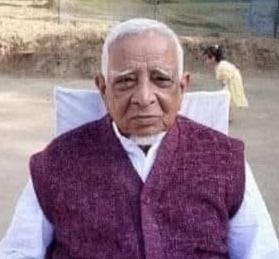Published: 05:41 AM, 07 November 2025
Comrade Abdul Malik: The Silent Warrior of Bangladesh’s Struggles

Sangram Datta: In the quiet corners of Prithvimpasha village, in Moulvibazar district, a boy was born on June 23, 1934, who would grow up to become a relentless fighter for justice, equality, and human dignity. Abdul Malik, now remembered as a language warrior, lifelong peasant leader, and activist, lived a life defined by courage, sacrifice, and a tireless commitment to the people.
Roots of a Fighter:
Abdul Malik’s early years were shaped by the simplicity and hardship of rural life. His father, Md. Ilim, worked tirelessly to support the family, while his mother, Shabrunnesa Khatun, instilled in him compassion, resilience, and a deep respect for humanity. Growing up, young Malik witnessed the struggles of farmers and laborers around him—a reality that would fuel his lifelong mission for justice. “Even as a boy, he could not ignore the suffering around him,” villagers would recall years later.
A Voice for Language:
By 1952, the language movement was sweeping across East Pakistan, and Abdul Malik was in the thick of it. As a student and organizer, he mobilized youth and local communities to demand recognition of Bangla as a state language. Police batons and arrests could not deter him; his courage became a model for younger generations. It was in these early struggles that Malik’s identity as a “language warrior” was forged—a man for whom mother tongue and cultural dignity were inseparable from the fight for justice.
Facing Tyranny:
The 1960s brought new challenges. When President Ayub Khan’s regime tightened its grip on East Pakistan, Abdul Malik joined protests demanding political freedom and social justice. Arrested under charges of treason in 1962, he endured four months in prison. Again, in 1969, during the mass uprising against autocracy, he found himself behind bars, yet even there, he inspired fellow prisoners and strengthened the movement outside. His life was a testament to the power of conviction: he never wavered, even when facing the state’s harshest punishments.
The Liberation War: Courage in the Shadows:
In 1971, as East Pakistan fought for independence, Abdul Malik did not take up arms on the battlefield. Yet, his role was no less crucial. From refugee camps in Agartala, India, he became a covert operative, delivering food, supplies, and intelligence to freedom fighters. He risked life and liberty to ensure that those fighting for the nation had the support they needed. In a war often measured by battlefield heroics, Malik’s courage was quieter, but equally vital—a reminder that heroism comes in many forms.
Champion of the Marginalized:
After the Liberation War, Malik dedicated himself to post-war struggles: advocating for farmers’ and laborers’ rights, leading hill tract movements, and fighting for the underrepresented. His vision was clear: a society where every citizen enjoys equal rights and opportunities. Even as age and illness slowed him physically, his voice and ideals never faded.
Final Years and Legacy:
In his later years, Abdul Malik faced the toll of age and illness. Confined largely to his home, he still dreamed of a Bangladesh where equality and justice were realities, not ideals. On June 13, 2022, at the age of 88, he passed away peacefully in his village of Prithvimpasha. Earlier that year, the Moulvibazar District Administration honored him as a veteran of the language movement, acknowledging a lifetime of service to the nation.
Remembering a Life of Struggle:
Abdul Malik’s story is more than a biography—it is a reflection of Bangladesh’s own struggles. From fighting for language and political rights to supporting the liberation movement and advocating for marginalized communities, his life was defined by courage, selflessness, and unwavering commitment.
Though his dream of a fully equal society remains unfinished, his legacy endures. For future generations, Abdul Malik is a beacon—a reminder that the fight for justice, though often slow and arduous, is always worth it. In every language spoken freely, every farmer and laborer empowered, and every act of resistance against oppression, his spirit lives on.




